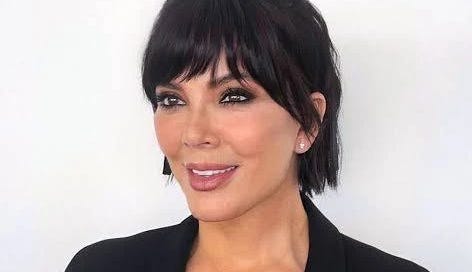Kris Jenner debuted a brand-new face last week. She’s 70 going on 7. Her skin is smoother than mine (*sigh*). At first glance, she could be Kim.
From Lindsay Lohan to Anne Hathaway to Christina Aguilera—and now #mother herself—the leading ladies of Hollywood are being babyfied into glossy, poreless, newborn versions of themselves. It’s a sharp pivot from the overly filled, puffed-up faces that ironically took off after Jenner’s daughter, Kylie, revealed in 2016 that her lips weren’t divine miracles, but the work of a surgeon and a syringe.
As the skincare market booms to $200 billion and tweakments go mainstream, one thing is clear: getting old is getting old.
This extreme aversion to aging skews heavily female—and of course it does. Women have long been judged first and foremost by how they look. Even now, pretty privilege is real. (It’s a lot to unpack. I suggest you read Beauty Sick.) The anti-aging boom was inevitable: science that can literally make you hotter is something people will pay for. But the rise of social media—and then COVID, when we were forced to stare at our own faces for hours on end in Zoom calls—pushed this inevitability into obsession.
Most trends swing back. Skinny jeans are out. Baggy jeans from the ’90s are back. Smoking went away. Now all the kids are doing it. Even Crocs went from cringe to couture. But beauty-as-currency? That hasn’t budged. In fact, calling it a “trend” feels misleading. It’s not a trend. It’s an addiction.
In brand-land, there was a fleeting moment where companies flirted with a more inclusive vision of ageless beauty. And some still do, like Jones Road, founded by the iconic Bobbi Brown. But that’s the exception. Most beauty brands are selling us babification—because they know we’ll pay anything for a shot at the fountain of youth. Even if a brand isn't in the beauty space, it's still beauty-coded and the message is clear: young=attention; old=ignored.
Jenner, ironically, was at a disadvantage. (Yes, even billionaires have them.) By the time this kind of subtle surgery became possible, she’d already shown visible signs of aging — so when she unveiled her new face, the world noticed. Going forward, the goal won’t be to age well — it’ll be to look like you haven’t aged at all. More women (and men) will quietly intervene earlier and more often, not to change their face, but to preserve the illusion nothing’s changed at all.
Funny to be writing this on the heels of my 10th 21st birthday (wink). But the truth is, we’re not aging backwards for vanity. We’re regressing to keep our relevance.
You Didn't Hear It From Me But...
If you're trying to figure out your life's purpose then give this a read.
Everyone needs to watch The Rehearsal
E.L.F acquired Rhode for $1B — a testament to the power of a founder as the face, especially one as prolific (and glowy) as Bieber. It’s well-timed with a piece exploring how female founders are expected to be the brand, while their male counterparts get to stay behind the scenes.
Krista Tippet's On Being podcast episode with Jon Kabat-Zinn is a masterclass in mindfulness (and despite it being recorded in 2012 it feels like it dropped last week). Excellent listen heading into the weekend.
Got any gossip? Send it my way.





Being in my later 60s, I think I've JUST missed this trend. I'm sure there are plenty of women my age getting "things" done, but I don't think it's quite as common as, say, for women currently in their 50's. And my feeling about missing the boat? To be honest – relief. Sure, I don't look in the mirror every morning and feel ecstatic about my aging face. But frankly the alternative sounds exhausting to me. In many ways, I'm finding older age to be a welcome break from all of those decades of being so focused on my appearance. Also, I think our culture has an unhealthy relationship with aging and death and I fear these trends are only making that worse.